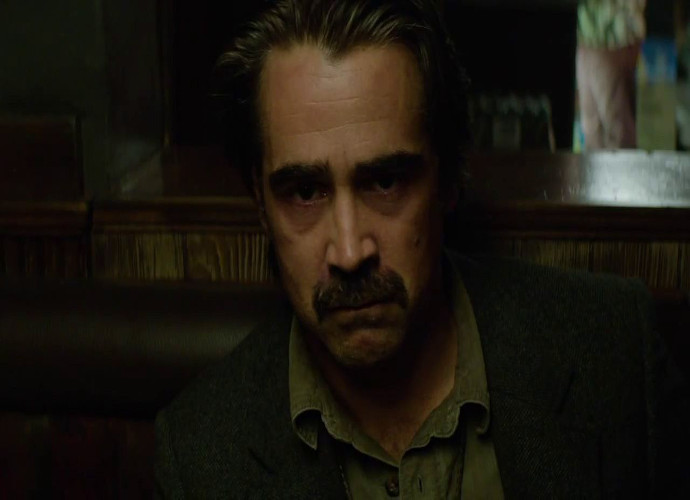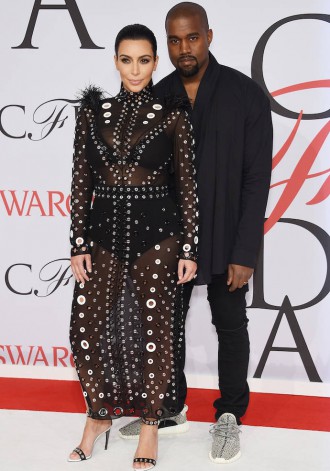‘True Detective’ Season 2 Premiere Review: Disappointing Start To A New Season

2.5/5
“This is my least favorite life,” an ultra-depressing singer-songwriter declares in a dimly lit bar during the season two premiere of HBO’s True Detective. Well, I can relate – this was probably my least favorite episode of True Detective, and that certainly includes the somewhat disappointing climax of season one. The finale of season one was only a letdown because the show was immediately and consistently engaging, atmospheric, heady and immersive, anchored by indelible performances by Woody Harrelson and Matthew McConaughey, visually stunning direction from Cary Fukunaga, and strong writing by Nic Pizzolatto that successfully utilized the framework of detective fiction to create a gripping character study of its two leads infused with philosophy and mythological elements largely inspired by the somewhat obscure, 19th century genre of weird fiction. Even with its flaws and dearth of believable, nuanced female characters, it was an outstanding and unforgettable season of television, a surprise hit that viewers went into with no expectations, quickly finding themselves hooked and enthralled. Needless to say, I really wanted to fall under this show’s spell all over again with the premiere of season two.
Unsurprisingly, with the success of last season, there have been very high expectations going into this season, and the premiere largely fails to live up to them. Like American Horror Story, True Detective is an anthologized series, meaning that every season will stand alone with its own characters, setting and eight-hour story arc. This served the show quite well in its first season, since it allowed the series more time than a feature film to establish its characters, plot and setting while also forcing the show to not waste a single scene since the story would be complete after eight episodes, which allowed Pizzolatto to constantly raise the stakes while eliminating the filler common even in good serialized shows. It also allowed the series to attract its two Hollywood A-list leads who would normally balk at committing to a lengthy television series. However, it means that we’ve lost Rust, Marty and Louisiana this season, and we’re instead introduced to Vinci, a fictional California city in Los Angeles County, and joined by three tortured law enforcement officials, Ray Velcoro (Collin Farrell), Ani Bezzerides (Rachel McAdams) and Paul Woodrugh (Taylor Kitsch), one mobster vying for legitimacy, Frank Semyon (Vince Vaughn), and his Lady Macbeth-esque wife, Jordan (Kelly Reilly). Sadly, we’ve also lost the direction of Fukunaga, which further compounds the impression I felt while watching the premiere; this show may be called True Detective, but it’s no True Detective. If this season doesn’t quickly find its groove after the shoddy introduction, I’m going to find myself wishing that HBO had simply left it as an excellent mini-series rather than opting for a middling franchise.
Even the opening credits didn’t feel right — the show has opted for an ill-fitting Leonard Cohen song for its theme that surely raised the eyebrows of just about everyone tuning in Sunday night. Moving past that, this was an overstuffed, meandering premiere light on plot, heavy on ineffectual exposition and lacking any strong central character that draws the audience into its world. It seems all three detectives want to be Rust, the tormented outcast with a nihilistic outlook, and no one wants to be Marty, the flawed everyman who stands in for the audience as Rust’s foil. Without that sense of humor and the challenge that a Marty-type character poses to such a dark, anti-humanistic worldview, we are bombarded with such unrelenting gloom that it borders on self-parody.
Ray is a seemingly irredeemable, alcoholic berserker with an estranged ex-wife and a son who may or may not be his, but the product of his ex-wife’s rapist. He drinks constantly, verbally abuses his son, and attempts to redeem himself as a father by viciously assaulting the father of a bully at school and threatening to “come back and butt-f*** your father with your mom’s headless corpse on this lawn.” Dude’s got rage issues. He’s also a dirty cop, as he is in the pocket of Frank. A flashback reveals a much cleaner looking Ray – which can only invite unfavorable comparisons to the richness and nuance of Rust as a character, who was similarly scraggly in season one’s 2012 timeline and clean-shaven in the 1990’s — walking into Frank/Satan’s den to get information on his wife’s rapist. The doorway is actually illuminated with demonic red light — because subtlety is no fun. Frank is a walking cliche in the premiere as the criminal who decides to go legit with some convoluted railway scheme, but his relationship with his wife and the performance by Kelly Reilly does hold some promise. Ray helps clean up Frank’s mess by brutalizing a muckraking reporter working on a story that exposes Vinci’s corruption and threatens his business venture, subjecting the audience to yet another crime fiction cliche. Ani is a tough female detective — and transparent rebuttal to Pizzolatto’s feminist critics — who has a propensity for rough sex and has a dysfunctional family that includes an addict sister involved with the porn industry and a New Age guru dad who has washed his hands of any parental responsibility. If any character is going to help turn this season around, though, I think it will be Ani’s. Finally, we also have Paul, a highway patrolman traumatized and disfigured by his experience in war whose idea of therapy is suicidal rides on his motorcycle.
The central plot and the means by which these disparate characters are united by the episode’s end is the disappearance of Ben Casper — get it, he’s a ghost — a city manager and Frank’s associate. This story lacked any momentum or urgency, as it was buried under the episode’s exposition and burdensome need to establish all the main characters. Now, it may seem unfair to hold this season up to the standards of its predecessor and compare it so unfavorably, but it’s not, because after a premiere like this, the only reason I’m compelled to keep watching is the goodwill engendered by season one. I have to imagine that this season will discover some of the magic of the first one and proceed as a solid story in its own right. A clumsy beginning can be easily forgiven and forgotten with a strong rebound in the middle episodes and climax, and that’s my sincere hope moving forward with True Detective.
Get True Detective: Season One here:
RELATED ARTICLES
Get the most-revealing celebrity conversations with the uInterview podcast!



 Click here for the 2015 CFDA Fashion Awards: Best Dressed Slideshow
Click here for the 2015 CFDA Fashion Awards: Best Dressed Slideshow




Leave a comment